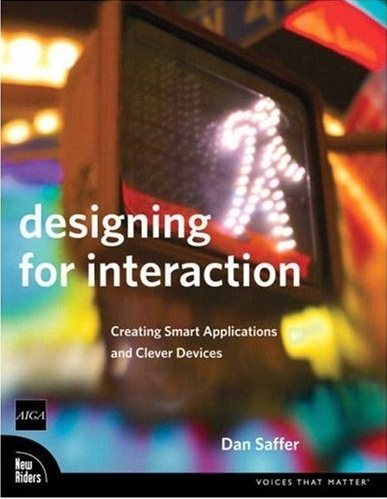
Course number:
CSE, EST, or ISE 323
Course title:
"Human-Computer Interaction"
Course description:
A survey course designed to introduce students to Human-Computer Interaction and prepare them for further study in the specialized topics of their choice. Students will have the opportunity to delve deeper in the course through a course project. Emphasis on innovative approaches, such as speech and gesture recognition. Exploration of sensor technologies and computer vision.
Prerequisite(s):
CSE 214 or CSE 230 or CSE 260 or ISE 208
Number of credits:
3 hours lecture; 3 credits
Course Objectives:
In this class, we will be alternating between the theoretical and the practical. On the theoretical side, you will learn about underlying principles, design guidelines, HCI models and approaches. On the practical side, you will learn to use a multimedia authoring tool (Adobe Flash) to rapidly prototype and develop your own interactive applications. At the conclusion of the class, students will:
understand the terminology and methods used in HCI
understand users’ needs, requirements and abilities,
understand the range of possibilities for human-computer interaction, and
be able to design applications and services that are user-centered.
Text:

Dan Saffer, Designing for Interaction: Creating Innovative Applications and Devices. New Riders, 2010. ISBN: 0-321-64339-9
Course Topics:
What Is Interaction Design? (Saffer, Ch. 1)
The Four Approaches to Interaction Design (Saffer, Ch. 2)
Design Strategy (Saffer, Ch. 3)
Design Research (Saffer, Ch. 4)
Structured Findings (Saffer, Ch. 5)
Ideation and Design Principles (Saffer, Ch. 6)
Refinement (Saffer, Ch. 7)
Prototyping, Testing, and Development (Saffer, Ch. 8)
The Future of Interaction Design (Saffer, Ch. 9)
Designing for Good (Saffer, Epilogue)
Here is a link for a study guide to the text.
Computer Usage:
Programming assignments will be written in the multimedia authoring environment Unity 3d, using Javascript or C#. Students will use existing function libraries to support the input/output of audio, visual, and sensor information. Other digital media production tools, such as Adobe Photoshop, Blender, Audacity, and Apple's GarageBand and iMovie may be needed to develop the interface and content for the term project.
Course webpage:
http://xsrv.mm.cs.stonybrook.edu/hci
Course email:
hci@cs.stonybrook.edu
Course coordinator:
Lori Scarlatos
lori.scarlatos@stonybrook.edu
Course instructor:
Tony Scarlatos
anthony.scarlatos@stonybrook.edu
Americans with Disabilities Act:
If you have a physical, psychological, medical or learning disability that may impact your course work, please contact Disability Support Services, ECC (Educational Communications Center) Building, room128, (631) 632-6748. They will determine with you what accommodations, if any, are necessary and appropriate. All information and documentation is confidential.
Academic Integrity:
Each student must pursue his or her academic goals honestly and be personally accountable for all submitted work. Representing another person's work as your own is always wrong. Faculty are required to report any suspected instances of academic dishonesty to the Academic Judiciary. Faculty in the Health Sciences Center (School of Health Technology & Management, Nursing, Social Welfare, Dental Medicine) and School of Medicine are required to follow their school-specific procedures. For more comprehensive information on academic integrity, including categories of academic dishonesty, please refer to the academic judiciary website at http://www.stonybrook.edu/uaa/academicjudiciary/
Critical Incident Management:
Stony Brook University expects students to respect the rights, privileges, and property of other people. Faculty are required to report to the Office of Judicial Affairs any disruptive behavior that interrupts their ability to teach, compromises the safety of the learning environment, or inhibits students' ability to learn. Faculty in the HSC Schools and the School of Medicine are required to follow their school-specific procedures.
Minimal Student Responsibilities: http://sb.cc.stonybrook.edu/bulletin/current/policiesandregulations/policies_expectations/min_instructional_student_resp.php